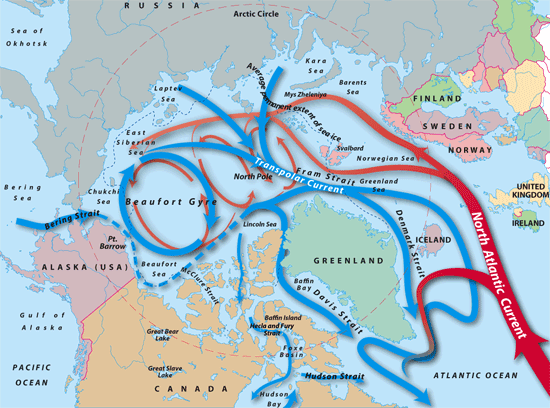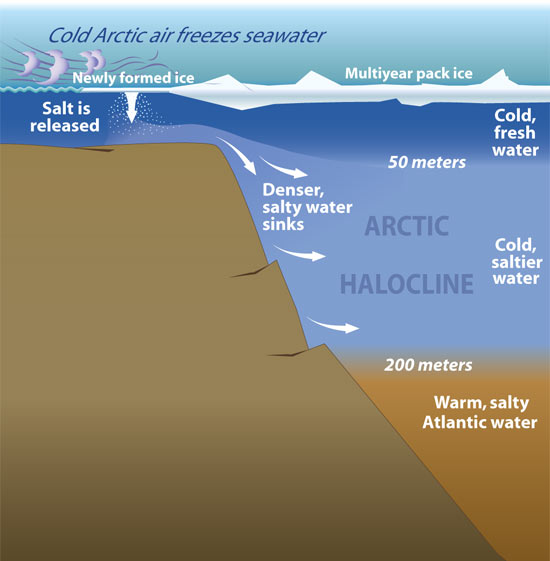
Follow the water: Cold, relatively fresh water from the Pacific Ocean enters the Arctic Ocean through the Bering Strait. It is swept into the Beaufort Gyre and exits into the North Atlantic Ocean through three gateways (Fram, Davis, and Hudson Straits). Warmer, denser waters from the Atlantic penetrate the Arctic Ocean beneath colder water layers, which lie atop the warmer waters and act as a barrier preventing them from melting sea ice. Woods Hole Oceanographic Institution scientists have launched a variety of missions to explore how global climate change is affecting the Arctic, and how changes in the Arctic, in turn, could spill out and cause further climate change well beyond the polar region. (Illustration by Jack Cook, Woods Hole Oceanographic Institution)

THE ARCTIC HALOCLIINE—When sea ice forms, it releases salt into surface waters. These waters become denser and sink to form the Arctic halocline—a layer of cold water that acts as barrier between sea ice and deeper warmer water that could melt the ice. (Illustration by Jayne Doucette, WHOI)
--------------
(Auszug)
Slowing the Ocean Conveyor
January 23, 2006
Melting sea ice also means more fresh water in the ocean, which could flood into the North Atlantic. That could disrupt a global system of currents, known as the Ocean Conveyor. The Conveyor brings warm, salty Gulf Stream waters northward, where they release heat to the atmosphere in winter and temper the North Atlantic region’s climate. The waters then become cold enough again to sink to the abyss, propelling the underside of the Conveyor.
“Adding more fresh water to the North Atlantic could put a cap of lighter water over the denser, warmer water, blocking it from releasing its heat to the atmosphere and preventing it from sinking to drive the Conveyor,” said WHOI physical oceanographer Fiamma Straneo. “Small changes in fresh water can induce large changes in our climate. It’s something we need to measure, monitor, and understand. But it’s easier said than done.”
http://www.whoi.edu/institutes/occi/...cle.do?id=9206